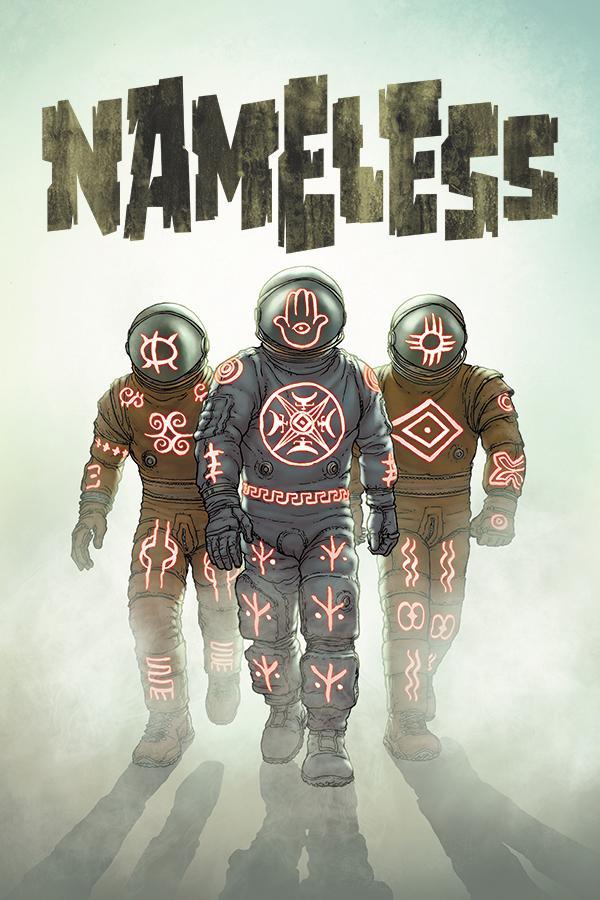 Nameless #1 review
Nameless #1 review
Grant Morrison and Chris Burnham team up again for something a little more cryptic and messed up than the Batman and Robin we’ve seen in the past. Nameless #1 explores the dark worlds of the occult and the doomed distant future.
“Nameless”, while he points out is still a name, has the unique ability to transcend dream states. This makes him particularly valuable to some and a menace to others.
The story is quite unique but strangely isn’t the highlight of Nameless #1. Nameless is a horror story through and through, one you want to dig deeper and deeper in to. Grant Morrison has created a frightening world, one that exists on multiple plains.
 I particularly like the dream sequences, something Chris Burnham has penciled up perfectly. He shows it’s a place where anything can and does happen, colors span from glowing pinks to worldly blues. Background words, signs, and creatures don’t exactly make sense, something I’d expect if I were dreaming.
I particularly like the dream sequences, something Chris Burnham has penciled up perfectly. He shows it’s a place where anything can and does happen, colors span from glowing pinks to worldly blues. Background words, signs, and creatures don’t exactly make sense, something I’d expect if I were dreaming.
I scoured Nameless #1 for hidden messages, one less obvious of which is the chilling line, “Zirom trian ipam ipamis” which I’m pretty sure is an anagram for something that some interweb geek has already figured out. Even the asteroid Xibalba has a cryptic symbol on it, one that’s showing up on Earth as well.
Nameless #1 is a dark horror story reminiscent of Scanners, They Live, Videodrome, and the like. This isn’t b-movie slasher material, this is horror that effs with your mind and haunts you in your sleep.
Turns out to be Angelic language, though I don’t get the meaning when directly translated. From “Antichrist Osiris: the History of the Luciferian Conspiracy.”
my best guess: “What was is not, what shall be cannot be.”
It’s Enochian for
“That which was, shall be.
That which is not, cannot be.”
Zirom = There was/were
Trian= Shall Be
Ipam = Is not
Ipamis = Cannot Be
The last line seems to be a quote from Parmenides:
“Q. If one is not, we ask what will happen in respect of one? That is the question.
A. Yes.
Q. Do not the words ‘is not’ signify absence of being in that to which we apply them?
A. Just so.
Q. And when we say that a thing is not, do we mean that it is not in one way but is in another? or do we mean, absolutely, that what is not has in no sort or way or kind participation of being?
A. Quite absolutely.
Q. Then, that which is not cannot be, or in any way participate in being?
A. It cannot.”